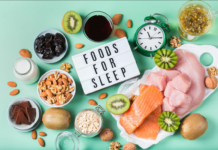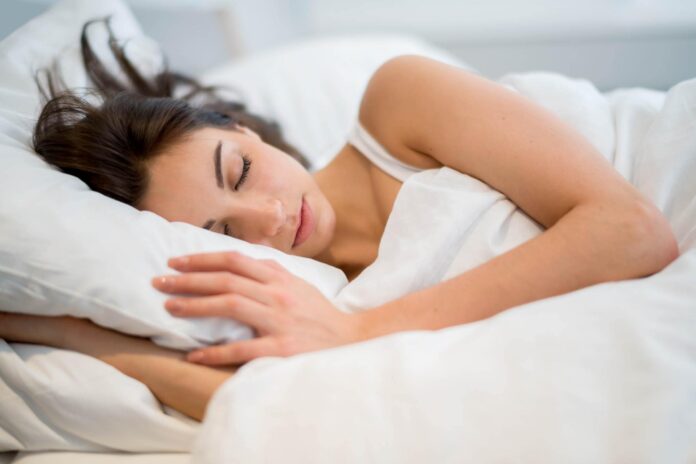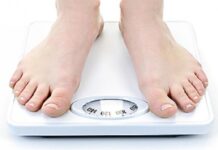Every hour of sleep before midnight is equivalent to two hours of sleep after midnight. That old saying was undoubtedly followed by your ancestors (and great grandparents). “The mythology is unfortunate because there is no pumpkin-like magic that occurs,” says Dr. Matt Walker, director of the University of California, Berkeley’s Sleep and Neuroimaging Lab. And, while nothing exceptional occurs to you or your sleep quality with the stroke of midnight, many people wonder: When is the optimum time to go to bed?
Walker claims that your sleep quality changes during the night. “When you sleep at night makes a significant difference in terms of the structure and quality of your sleep,” he says. Your sleep is made up of 90-minute cycles in which your brain transitions from deep, non-rapid eye movement (non-REM) sleep to REM sleep. Walker notes, “That 90-minute cycle is fairly stable throughout the night.” “However, the ratio of non-REM to REM sleep shifts.”
He claims that non-REM sleep dominates your sleep cycles in the early hours of the night. However, as the clock approaches daylight, REM sleep kicks in. This is noteworthy since some studies suggests that non-REM sleep is deeper and more restorative than lighter, dream-infused REM sleep—though Walker claims that both have major advantages.
What does it have to do with finding the ideal bedtime? Walker claims that the transition from non-REM to REM sleep occurs at specific periods of the night, regardless of when you go to bed. So, if you go to bed late—say, at 3 a.m.—your sleep will be lighter and more REM-heavy. And a lack of deep, restorative sleep may leave you tired and foggy the next day.
That’s bad news for nightshift workers, bartenders, and others with irregular sleep-wake schedules, Walker adds, because people can’t sleep properly at unusual hours of the day or night. Shift employment has been related to obesity, heart disease, an increased risk of premature mortality, and even reduced mental ability. In one research, persons who had worked at night had worse results on standardized tests of memory and processing speed than those who hadn’t—and those with a decade or more of shift work experience had such severe cognitive deficiencies that they amounted to nearly 6.5 years of cognitive decline. A new study shown that even brief periods of sleep had an effect. People who slept five hours every night for a week had a faster heart rate during the day. “You can’t work at night and sleep during the day and be at your best.” The circadian rhythms of your brain and body, which govern everything from your sleeping habits to your energy and appetite levels, inform your brain what sort of sleep to want. When it comes to nighttime, no matter how hard you attempt to reset or rearrange your circadian cycles, there’s just not much wiggle room. “These cycles have been in place for hundreds of thousands of years,” says the author. Walker elaborates. “Thirty or forty years of professional life will not change them.”
You don’t have to work shifts to feel this.
When it comes to sleep, he believes there is a window of several hours—roughly between 8 PM and 12 AM—during which your brain and body can obtain all of the non-REM and REM shuteye they require to function efficiently. And, believe it or not, your genetic composition determines whether you’re more comfortable going to bed earlier or later within the broad 8-to-midnight timeframe, according to Dr. Allison Siebern, associate director of Stanford University’s Insomnia & Behavioral Sleep Medicine Program.
“For people who are night owls, going to bed very early goes against their physiology,” Siebern explains. The same is true for “morning larks” who try to stay up late. For either type of person—as well as for the vast majority of sleepers who fall somewhere in between—the best bedtime is the hour of the evening when they feel most sleepy.
That implies night owls should avoid going to bed at 9 or 10 p.m. if they aren’t exhausted. Of course, your career or family obligations may govern when you must wake up in the morning. But, she adds, if you can find a method to match your sleep pattern to your biology—and get a full eight hours of shut-eye—you’ll be better off.
Both she and Walker believe that your ideal bedtime will alter as you get older. While tiny toddlers are usually exhausted in the early evening, college-aged people may be more comfortable going to bed around or after midnight. Walker predicts that after college, your optimal bedtime would likely shift sooner and earlier as you become older. Again, your biology determines all of this.
Siebern recommends experimenting with various bedtimes and using tiredness as a barometer to find the optimum match. Just make sure you get up around the same hour every day, weekdays or weekends. It is OK to sleep an additional hour on weekends and holidays. However, if you wake up at 6:30 during the week and sleep until 10:00 on weekends, you will disrupt your sleep rhythms and make bedtime more difficult, she says.

















